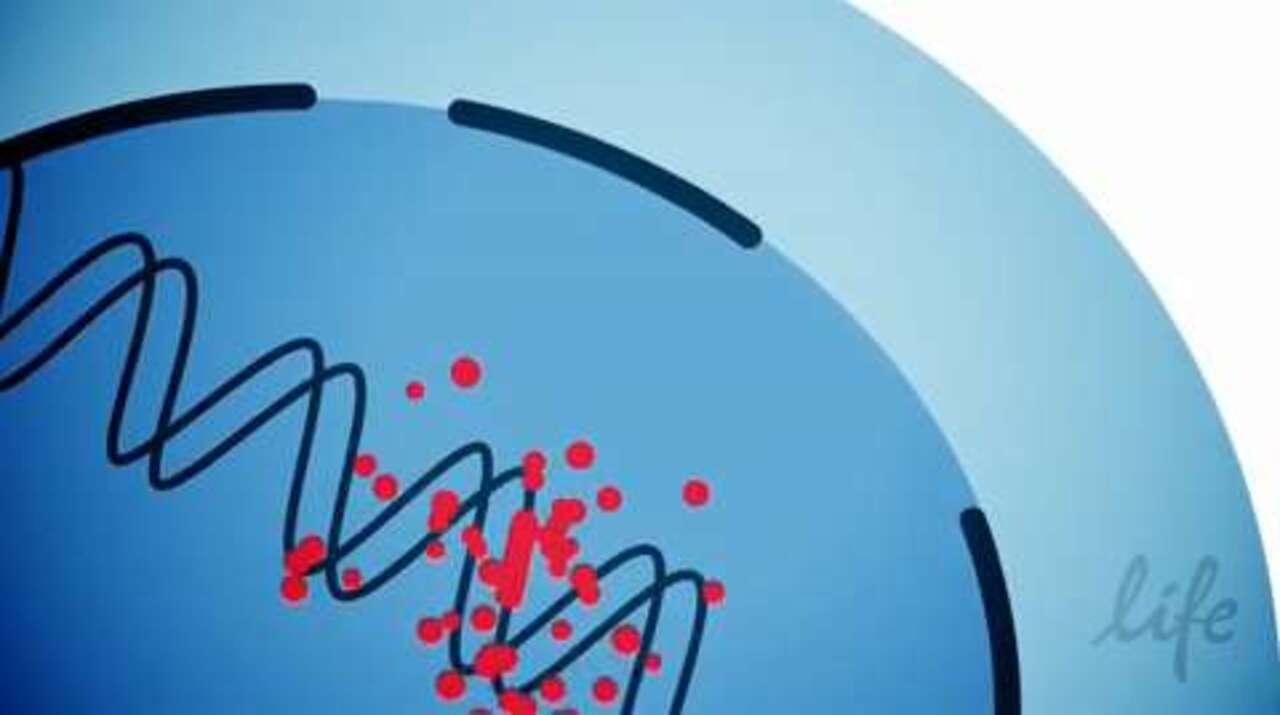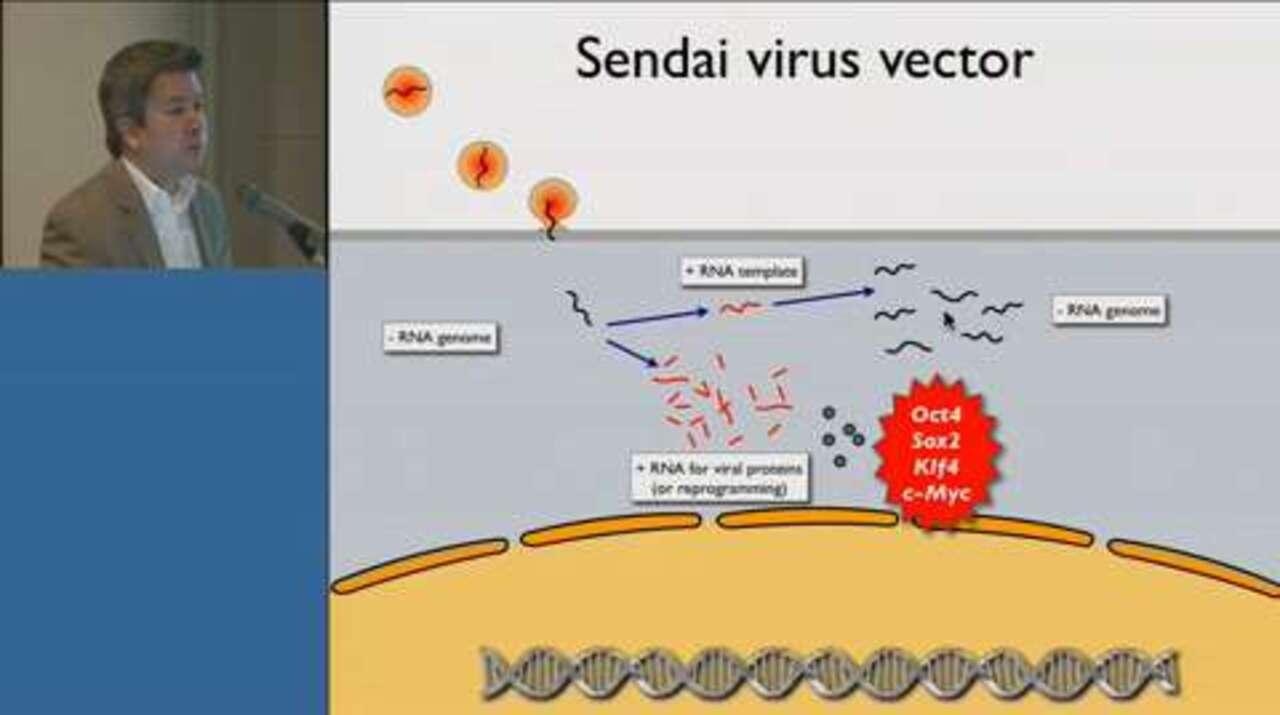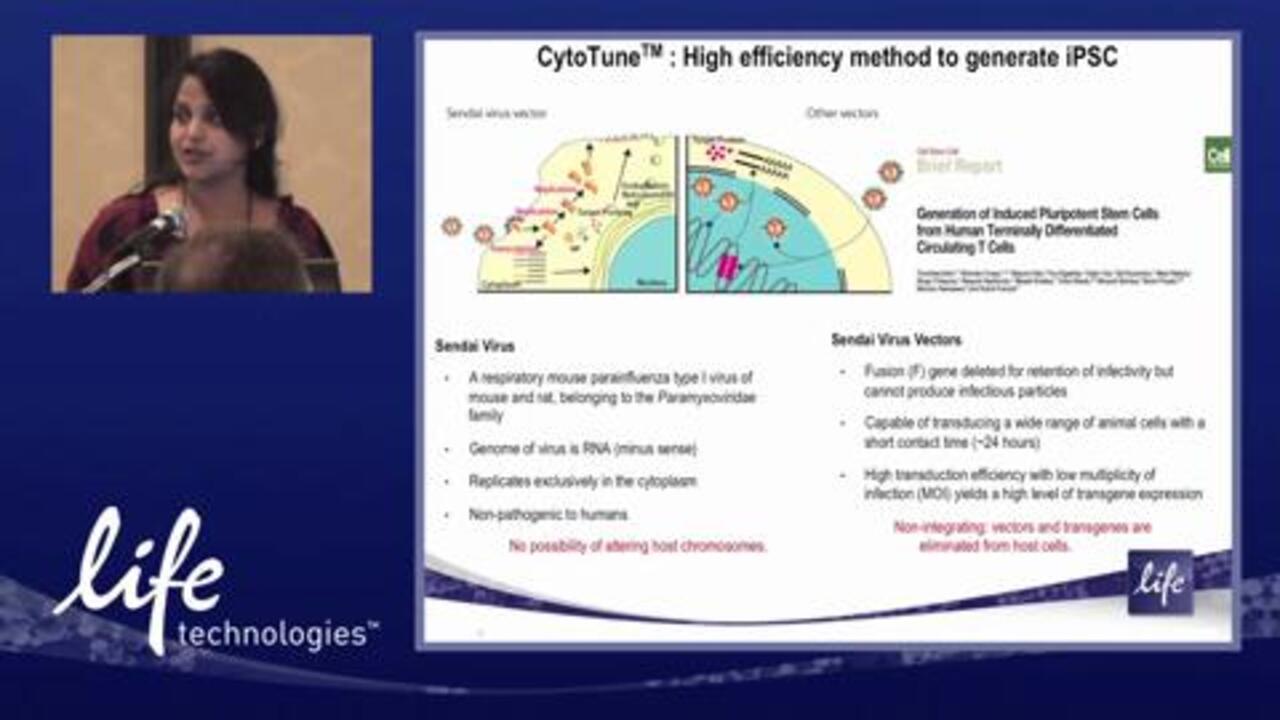Search Thermo Fisher Scientific
Technical Resources for the CytoTune-iPS Kits
 | Check out our technical resources for reprogramming using Sendai virus. We have detailed protocols and FAQs as well as technical videos to help guide you along your CytoTune reprogramming journey. |
CytoTune-iPS 2.0 Sendai Reprogramming Kit
| Technical Resource | Name |
|---|---|
| Protocol | Generation of hiPSCs using CytoTune-iPS 2.0 Sendai Reprogramming Kit (includes fibroblasts in feeder-dependent and feeder-free environments, PBMCs, and CD34+ cells) |
| User Guide | CytoTune-iPS 2.0 Sendai Reprogramming Kit User Guide (Includes protocols for reprogramming fibroblasts, PBMCs, and CD34+ cells) |
| FAQs | CytoTune-iPS 2.0 Reprogramming Kit Frequently Asked Questions |
Learn from the Experts
Video 1: How Does Sendai Virus Reprogram Cells?
This video demonstrates how Sendai virus, found in the CytoTune-iPS Sendai Reprogramming Kit, reprograms somatic cells to generate induced pluripotent stem cells (iPSCs).
Video 2: Leaving Nothing to Chance by Dr. Mark Tomishima
Dr. Mark Tomishima, of the Sloan Kettering Institute Stem Cell Research Facility, discusses the work of his lab in evolving their methods to reprogram cells using Sendai viral vectors that do not alter the genome. This technology allows the production of engineered iPSC lines that lack randomly inserted DNA.
Video 3: Dr. Uma Lakshimipathy presents Generation of Transgene-Free Induced Pluripotent Stem Cells
Dr. Uma Lakshmipathy presents work on the creation of integration-free induced pluripotent stem cells at high efficiency with Sendai Virus using the CytoTune-iPS Sendai Reprogramming Kit.
Video 4: A Thought Leader's Perspective - Unlocking cardiovascular disease with iPS cells
Harvard scientist Dr. Chad Cowan drives new discoveries in diabetes and heart disease research with iPS cell technology powered by CytoTune technology.
CytoTune-iPS 2.0 Sendai Reprogramming Kit
| Technical Resource | Name |
|---|---|
| Protocol | Generation of hiPSCs using CytoTune-iPS 2.0 Sendai Reprogramming Kit (includes fibroblasts in feeder-dependent and feeder-free environments, PBMCs, and CD34+ cells) |
| User Guide | CytoTune-iPS 2.0 Sendai Reprogramming Kit User Guide (Includes protocols for reprogramming fibroblasts, PBMCs, and CD34+ cells) |
| FAQs | CytoTune-iPS 2.0 Reprogramming Kit Frequently Asked Questions |
Learn from the Experts
Video 1: How Does Sendai Virus Reprogram Cells?
This video demonstrates how Sendai virus, found in the CytoTune-iPS Sendai Reprogramming Kit, reprograms somatic cells to generate induced pluripotent stem cells (iPSCs).
Video 2: Leaving Nothing to Chance by Dr. Mark Tomishima
Dr. Mark Tomishima, of the Sloan Kettering Institute Stem Cell Research Facility, discusses the work of his lab in evolving their methods to reprogram cells using Sendai viral vectors that do not alter the genome. This technology allows the production of engineered iPSC lines that lack randomly inserted DNA.
Video 3: Dr. Uma Lakshimipathy presents Generation of Transgene-Free Induced Pluripotent Stem Cells
Dr. Uma Lakshmipathy presents work on the creation of integration-free induced pluripotent stem cells at high efficiency with Sendai Virus using the CytoTune-iPS Sendai Reprogramming Kit.
Video 4: A Thought Leader's Perspective - Unlocking cardiovascular disease with iPS cells
Harvard scientist Dr. Chad Cowan drives new discoveries in diabetes and heart disease research with iPS cell technology powered by CytoTune technology.
Intended use of the products mentioned on this page vary. For specific intended use statements please refer to the product label.


